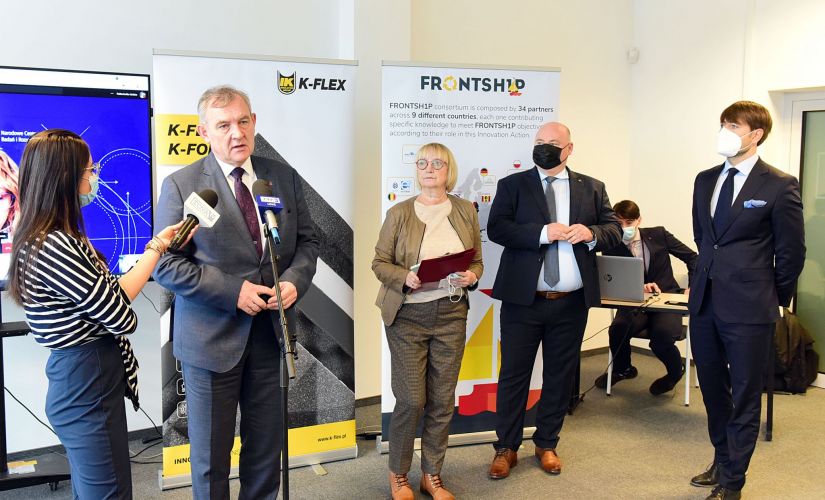FRONTSH1P is "the most Polish European project", because as many as 11 participants are Polish institutions, whose expenses will amount to EUR 7.5 million of the total budget. The funding comes from the Horizon 2020 programme - the European Green Deal competition. International experts gave the application submitted by the consortium the maximum score.
The cooperation of such a large number of partners concerns the so-called "circular economy", i.e. a system solution in which closed loops are created, thus minimising the consumption of raw materials and waste production. The project will create four such loops. Each loop will cover a different type of waste:
1) wooden packaging;
2) Food, agricultural and municipal organic waste;
3) wastewater;
4) plastic and rubber waste.
Over a period of 4 years, new solutions will be developed that will contribute to decarbonising production and consumption systems, improving quality of life, increasing interaction between urban and rural regions and, ultimately, economic growth. The proposed model will be implemented and demonstrated in the Łódź Voivodeship. It is expected that as a result of the project carbon dioxide emissions in the Lodz region may decrease by 2% - 3%. Looking at the list of consortium members, the concepts and solutions adopted in the project will be applicable in many regions of Poland and Europe.
- Our project is very complex, which is proven by its budget and the list of consortium members. Lodz University of Technology likes challenges, the effects of which bring good for our planet, which is more and more endangered by human activities. We take many initiatives in the field of sustainable development, and joining this great project is one of them. I am glad that the Lodz region will be the area of first implementation of good solutions and technologies which will later go worldwide - says Professor Krzysztof Jóźwik, Rector of Lodz University of Technology. - Our university will conduct research and development work related to plastic and rubber waste. We will focus on the development of technology allowing us to reuse carbon dioxide produced by the project leader, K-Flex.
The Italian company K-Flex has 14 production facilities around the world. K-FLEX Polska has been operating in our country for 19 years. The plant, employing over 800 people, is the largest employer in Uniejów. It specialises in the production of thermal and acoustic insulation from foamed rubber and polyethylene.
- We want to use every piece of waste from production to be reused in our processes. These are complex processes and the funding we have received will allow us to develop and improve them. We have created a consortium to be environmentally friendly, here in the Lodz Voivodship, but also more widely across Europe - says Bartłomiej Gröbner, Managing Director of the Polish branch of K-Flex.
Adam Pustelnik, the First Vice-President of Lodz, emphasises:
If FRONTSH1P fulfils its objectives, and I am convinced that it will, the reduction of greenhouse gas emissions in the region by a few percent will be of historical significance.
Magdalena Głogowska, a representative of the NCRD National Contact Point, emphasised that the FRONSH1P project is one of the four projects that received co-financing from over 90 applications. Speaking about its great importance, she added
- Within the framework of this project, a Territorial Cluster of Closed-cycle Initiatives will be created, in which key partners join forces - science, business, local authorities and regional authorities. This is a very ambitious and demanding project, which will contribute to the transformation of the Lodz Region towards a circular economy, but that's not all - the solutions developed here will be replicated in other regions of Poland and abroad.

